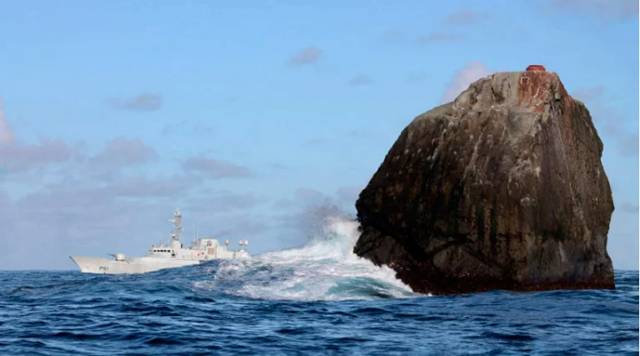Two Irish international maritime law experts have said that Scotland is within its legal rights to place a 12-mile territorial limit around Rockall writes Lorna Siggins.
Statements made by Government ministers over the past week have been “incorrect”, as Rockall is entitled to a 12-mile territorial sea, Prof Clive Symmons, Trinity College Dublin maritime law expert says.
Ireland also agreed to Rockall being included in Britain’s exclusive economic zone (EEZ) in March, 2013.
Scotland is “within its rights” to threaten enforcement, and Ireland “hasn’t a leg to stand on” within Rockall’s 12-mile limit, Prof Symmons says.
"Scotland is “within its rights” to threaten enforcement, and Ireland “hasn’t a leg to stand on” within Rockall’s 12-mile limit, Prof Symmons says"
Prof Ronán Long, who is ocean governance and law of the sea chair at the World Maritime University, concurs with Prof Symmons, and says that rocks can generate 12-mile territorial sea limits under UN Law of the Sea convention rules.
Since Scotland warned that it would enforce a 12-mile limit around Rockall from June 7th, Minister for Foreign Affairs Simon Coveney and Minister for Fisheries Michael Creed have challenged its right to do so.
Both ministers have pointed to Article 121 of the UN Convention on the Law of the Sea (UNCLOS) which states that “rocks which cannot sustain human habitation or economic life of their own shall have no EEZ or continental shelf”.
However, such rocks can still “generate territorial limits”, Prof Long and Prof Symmons say - confirming the case made last weekend by Scottish Cabinet Secretary for Rural Economy Fergus Ewing.
Prof Symmons points out that Irish and other EU vessels have been inspected by British authorities off Rockall before and there have been previous detentions.
Recorded detentions include Irish-registered vessels in 1987 and 1994, and a Cypriot-registered vessel with an Icelandic skipper, also in 1994.
Scottish Fisheries Protection Agency vessels have patrolled, inspected and boarded vessels in recent years, as Scotland is “administratively responsible” for Rockall.
Marine Scotland said it could not give figures for number of inspections of Irish vessels for “operational reasons”.
Prof Symmons, who is author of Ireland and the Law of the Sea published in 2000, says Irish governments have spent half a century “acquiescing” to various British claims to the rock, even if Ireland did not accept sovereignty.
“Sovereignty and a maritime zone are two separate issues here, and Ireland did not protest when a 12-mile limit was first placed around the rock in 1964,” Prof Symmons says.
The EU Common Fisheries Policy applies outside 12 mile territorial limits, but vessels from certain other EU states with “traditional rights” may be given access between six and 12 miles under the London Fisheries Convention.
However, Britain plans to leave the London Fisheries Convention next month, and Rockall was never specified in it anyway, Prof Symmons says.
Once Brexit takes effect, Irish and EU vessels will no longer have any rights to fish in British waters, Prof Long points out.
Fishing industry representatives have called on the Government to provide more transparency on the 2013 agreement between Ireland and Britain.
The 2013 agreement bears the names of Tánaiste Eamon Gilmore and then British ambassador to Ireland Dominick Chilcott and delineated the latitudes and longitudes of a “median line” between the EEZs, after boundaries were first agreed in 1988.
The 2013 British/Irish agreement on separate EEZs still has legal standing when applied bilaterally, Prof Symmons says.
Irish South and East Fish Producers’ Organisation chief executive Hugo Boyle confirmed that he raised the issue with Minister for Fisheries Michael Creed last Friday, when industry representatives were called into an emergency meeting and briefed on Scotland’s ultimatum.
The issue of seabed rights claimed by four countries – Ireland, Britain, Denmark (on behalf of the Faroe islands) and Iceland – is still with the UN, and is awaiting Iceland’s submission before it can be agreed.
However, Denmark has no objection to a British 12-mile limit around Rockall, Prof Symmons says.
The Department of Foreign Affairs did not respond to a series of questions on the issue.
































































